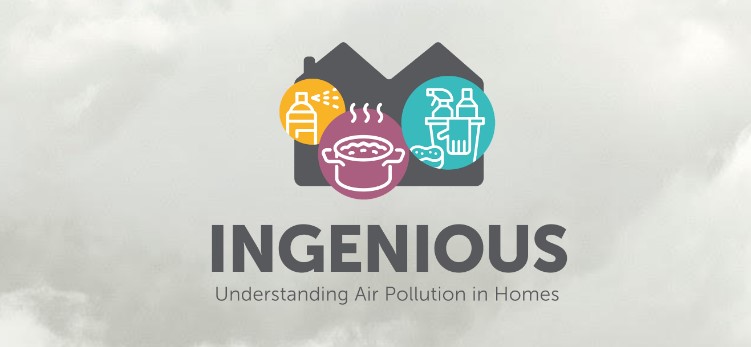
INGENIOUS
Key York Contacts
Professor Nicola Carslaw, Department of Environment and Geography
Principal and Co-Investigators
Principal Investigator
Professor Nicola Carslaw, Environment and Geography Department, University of York
Main Co-Investigators
Dr Terry Dillon, Department of Chemistry, University of York
Professor Rosie McEachan, Born in Bradford research programme, Bradford Teaching Hospitals NHS Foundation Trust
Professor Jacqui Hamilton, Department of Chemistry, University of York
Professor David Carslaw, Department of Chemistry, University of York
Professor Gordon McFiggans, Department of Earth and Environmental Sciences, University of Manchester
Dr Chantelle Wood, Department of Psychology, University of Sheffield
Professor Nicholas Pleace, Centre for Housing Policy, University of York
Dr Sarah West, Stockholm Environment Institute York centre, University of York
Principal Funder
UKRI
External Partners
Born in Bradford research programme, Bradford Teaching Hospitals NHS Foundation Trust
University of Sheffield
University of Manchester
University of Cambridge

 Currently, people spend about 90% of their time indoors, roughly 22 hours a day, which is a big change from previous generations. Given this substantial time spent indoors, it is crucial to prioritise safety within our homes, particularly concerning air pollution risks. However, there are more concerns of the air outdoors and yet, the air inside our homes, where we spend a significant portion of our lives, can harbour a myriad of pollutants that impact our health and well-being. From the fumes emitted by household products and the gases from emissions when cooking meals, the sources of indoor air pollution are as diverse as they are pervasive. Sometimes, the seemingly simple choice of whether to ventilate can significantly impact indoor air quality.
Currently, people spend about 90% of their time indoors, roughly 22 hours a day, which is a big change from previous generations. Given this substantial time spent indoors, it is crucial to prioritise safety within our homes, particularly concerning air pollution risks. However, there are more concerns of the air outdoors and yet, the air inside our homes, where we spend a significant portion of our lives, can harbour a myriad of pollutants that impact our health and well-being. From the fumes emitted by household products and the gases from emissions when cooking meals, the sources of indoor air pollution are as diverse as they are pervasive. Sometimes, the seemingly simple choice of whether to ventilate can significantly impact indoor air quality.